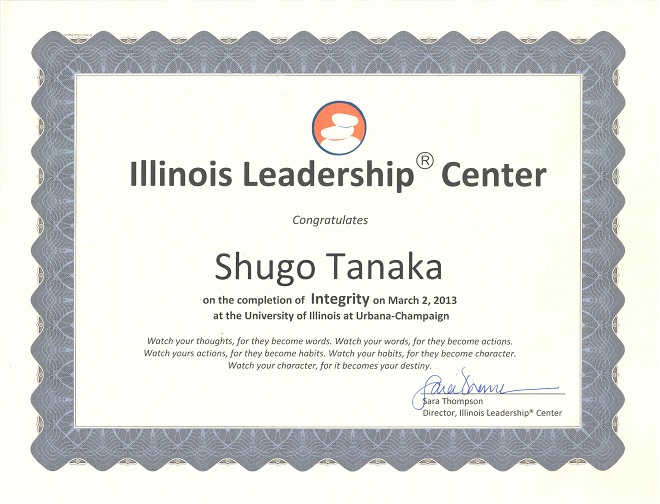Leadership Program Reflections
Intersect (June 2010)
The summer before coming to college, I attended my first i-Program: Intersect. This was an all-day event held right in the heart of the Chicago-land suburbs. The emphasis in this program is on team building and communication skills.
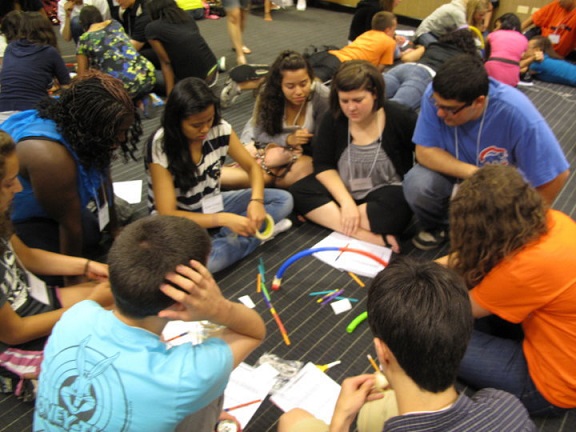
I looked into the large conference room and everyone was congregated around tables already engaged in conversation. My dad wanted to set me aside and talk with me, but I was eager to jump in and meet the new people. We got some of the brunch refreshments provided and my dad wanted to remind me to both be open to other people, while unwavering from my personal values. This little piece of advice has stuck with me all throughout my college experience. After my father left, I met up with the people who would become my team for the day.
Our first activity dealt with stereotypes and getting out of our comfort zone. Each team was given a personality quirk- being incredibly shy, invading personal space, etc. - and then we had to interact with others in games of rock-paper-scissors. This game taught how to deal with very different types of people in your future classes and career.
Throughout the morning, the focus was identifying our listening style and improving our listening skills. We took the Personal Listening Profile and I discovered that I veer towards listening for comprehension and appreciation. Listening for comprehension means that when others are speaking, I focus on organizing information and connect main ideas with supporting points. Being an active listener, I would ask questions for elaboration and summarize what the speaker is saying. My second major listening style is appreciation that is listening to enjoy the experience. This is a relaxed, easy-going style that responds to the language and tone of the speaker. As an active listener, I would let the speaker know I enjoy their talk thus improving the relationship for both of us. I scored the lowest in the empathetic listening style, so that's an area I would need to work on improving. Sometimes instead of trying to offer a solution, I just need to let the listener know I care and be someone they can "let off steam" to. With this style, I would remain relatively silent, ask open ended questions, and be sure to show interest. By knowing which listening styles I am strong in and need to some work, I can improve my relationships with superiors, colleagues, and followers.
After lunch, we started the second activity of the event. My group was given a list of supplies and we had to pick ten groupings while competing with the other teams. However, the catch was we didn't know what it was we were assigned to build. While we tried to get a wide variety of items to prepare for anything, there was a bit of struggle in communication in what materials would be most important. Once all the groups selected their supplies, we were revealed our task- launch an object to a target several feet away.
Our team started building a catapult, but ran into some engineering issues to make it work. Time was starting to run out and the catapult wouldn't fire accurately or very far. Then one of our group members came up with the idea to flip the whole thing upside-down and turn it into a quasi-trebuchet. That ended up working and our group's drive was invigorated. That taught us to always be looking at things in different ways and be open to new ideas.
This program introduced me to the Illinois Leadership Center and the idea that leadership is a skill that can be developed and improved. From Intersect, I learned how to better work in teams, as well as improve my personal listening style. The things I learned that day stemmed into the rest of my college career and throughout my experience with the Leadership Certificate program by improving being more outspoken and confident in my ideas, and helping my lead in teams.
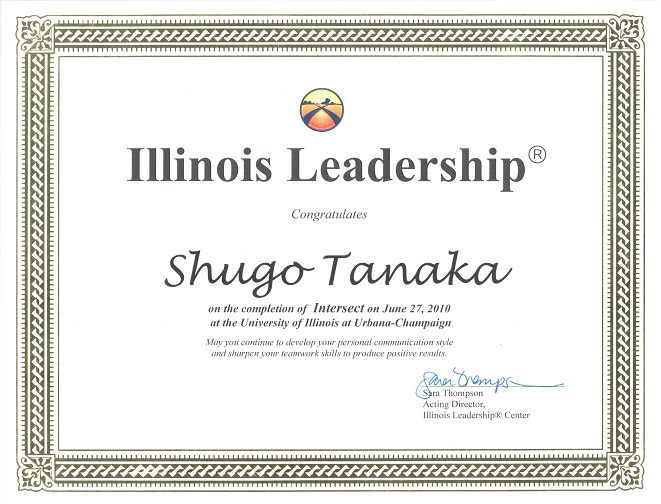
Insight (October 2010)
My second i-Program took place in the middle of my freshman year. I attended Insight which focused on self-awareness and self-management. Before the day's program, we were all assigned to take the StrengthsQuest.
After taking the StrengthsQuest questionnaire, I resulted in the five characteristics: positivity, inclusivity, futuristic, developer, and ideation. Perhaps due to slight confirmation bias, but I believe these five traits definitely apply to me.
The classic example between optimists and pessimists is whether they see a glass as half-full or half-empty. I would like to add though, even if the glass is completely empty- hey! You still have a glass. With that in mind, I try to always look on the bright side and see opportunity within every obstacle.
I know how it feels to be left out, almost everyone does. So that's why I try to always be inclusive and bring people together. I believe that everyone has something positive to offer to a group and being a leader is about pushing people beyond their expectations to unleash their full potential.
All of these traits are intertwined and interconnected. A prime example of this is the futuristic trait. I strongly believe the world is constantly improving and getting better. Part of this stems from the positivity trait, and the other part derives from the next two traits.
As a developer, I want to push projects to completion and bring out people's full potential in whatever they do. "If we take man as he is, we make him worse. But if we take him as he should be, then we make him capable of becoming what he can be." This quote is attributed to Goethe, a German scientist and philosopher. It's a philosophy I strive every day to live by.
My fifth strength is ideation, the thirst for creative ideas and to do things that have never been done before. I admire innovation in myself and others.
One of the greatest points I took out of Insight was to change from deficit-thinking to asset-thinking. I've always thought I should focus on improving my weaknesses. However, all this does is prevent failure. If I want to be successful, I have to push on excelling in my strengths.
Another emphasis in the program is identifying my inner values. We took a page out of Ira Glass's book and wrote a This I Believe. This is verbatim what I wrote that day several months ago:
This I believe... in following your interests and passions as your strengths. The old notion is that your strengths is only what you're good at, but this new idea allows for people to live their life to their full potential. Know thyself. If you know your strengths and your identity, then you can be a leader.
After this event, I figured out more who I was and who I wanted to be, and started to connect the dots to make those two ideas one in the same. Insight inspired me to work on improving my strengths, as well as leading to help others and work better in groups.
Since then, I've numerous times focused on my core strengths in my personal work and when working with others. Recognizing them gives a better comprehensive understanding of myself. I've touched upon them during interviews and introductions, and try to always improve my strengths than just focusing on my weaknesses.
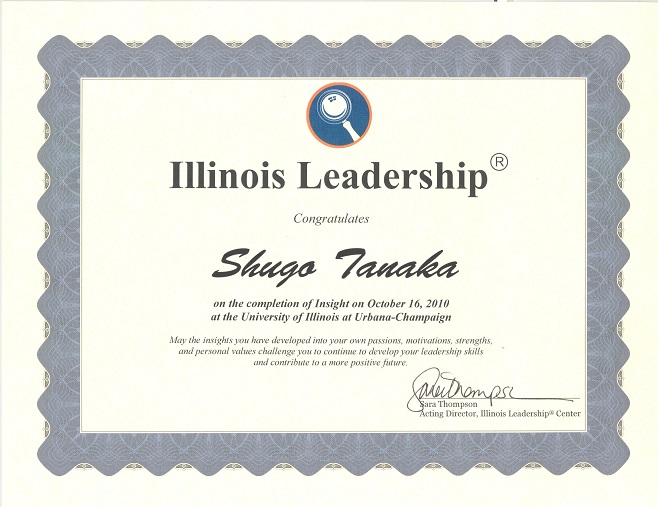
LeaderShape (January 2012)
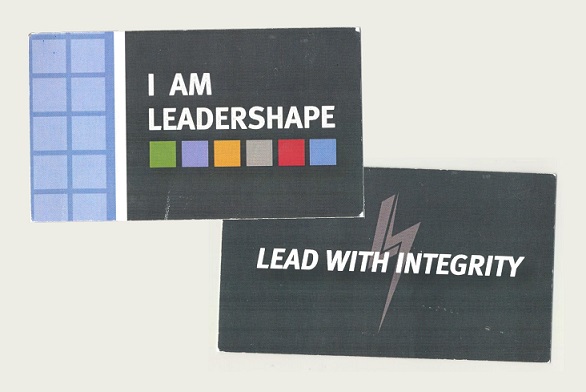
I learned an immense amount about leadership and myself throughout the six days of LeaderShape. Although they were just a few days, I felt closer to some of my family cluster members than some people I've known for months. In that short time, we talked about very deep stuff- our passions, our vulnerabilities, etc.- which you don't really discuss on a casual, everyday level. On the last night before the workshop was over, we had one-on-one conversations with each of our family members. We gave feedback on aspects we appreciated about each other, as well as areas to improve. While we are often more critical on ourselves than we ought to be, it was great to hear how others thought of us. It was also nice to openly compliment and tell others how much they mean to us, even if we only met each other less than a week ago. The first day's focus was Building Community. We emphasized being open and vulnerable to form deep relationships..
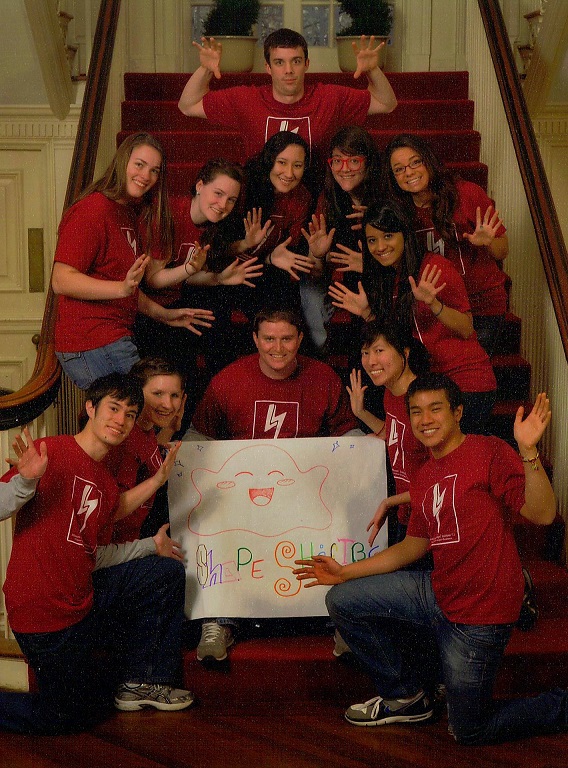
When I first arrived to LeaderShape, I tried to be outgoing and personable. I started talking to people and getting to know them better, but I still felt held back. I was uncomfortable and felt a lack of confidence in my voice and my vision. As the workshop went on, I felt more open and able to express myself. And by the end of the six days, I was comfortable with being loose and not listening to the little voice inside my head. One fun tipping point was we were all singing Journey's Don't Stop Believing, and I jumped up on the table to play an air guitar solo. Looking back on it, it was kind of silly, but still fun to get out of my comfort zone!
At the beginning of the workshop, we came up with GAG's for ourselves. These are times when we Go Against the Grain, by challenging to do something we normally don't. My GAG for the week was to speak up and be more confident in large group situations. After making this, I made the effort to raise my hand more and offer my opinion/ideas in discussions. I still have ways to go, but I feel like I made significant progress in fulfilling my GAG.
On the second day, we emphasized The Value of One, the Power of All. The main speaker mixed up the "power" and "value" which became a running joke throughout the rest of the workshop. We did a DiSC (Dominance, Influence, Steadiness, and Conscientiousness) personality evaluation to see what team persona style we best fit with. I was matched with the Influence style which meant I am enthusiastic, enjoy talking to people, participating, and try to be motivating. My Classical Profile was the promoter which is someone who's optimistic and accepting of others. This aligns with my two personal strengths of being positive and an includer.
Day Three's theme was Challenging What Is, Looking to What Could Be. We all crystallized our visions on how to improve the world. I want to create a world unified through an animated short film. I envision a loving, caring society based on the idea of a global community. My stretch goal is to create an animated short film that promotes community viewed by 1,000,000 people. It will be difficult, and I won't be able to do it by myself, but I believe I can make a reality.
On the fourth day, we continued working on our visions by Bringing Vision to Reality. We discussed stretch goals and manageable goals.
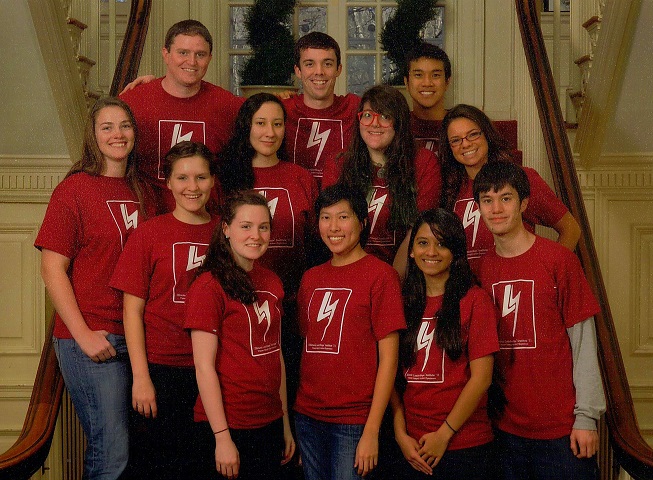
On the last full day, we discussed Living and Leading with Integrity. One of the cornerstone taglines to LeaderShape is "Lead with Integrity." I was able to solidify my core values: fairness, love, happiness, respect, and balance. Looking back to my values from AGED 260, I had said integrity, fairness, creativity, and adventure. Like Michelangelo sculpting David, I altered and removed some values as I shaped what my true values were. We also recognized the excuses often used when compromising our principles.
Day Six- unfortunately- was only a half day. Before all heading back to campus, this day was dedicated to Staying in Action. The most important lessons to remember are to stay positive about the experience and that leadership is constantly evolving and growing.
I've met so many wonderful people this week. I hope I don't miss them, because I hope we stay in contact. I learned more about myself: my blind spots and areas that I think poorly of myself, but others don't think so. I know I still have ways to go with being confident and outgoing, but in this short week, I feel like I've made bounds of progress. While having one-on-one talks with my family cluster, people have told me I'm positive, optimistic, fun to be around, and have a lot of great ideas. I had an amazing experience and will attempt to keep this momentum going as I head into my next semester and future career!
More than one year later, I still hold the strong relationships formed at LeaderShape. This whole experience both allowed me to develop and practice some of my leadership skills while speaking in front of others, working in teams, and forming strong networks.
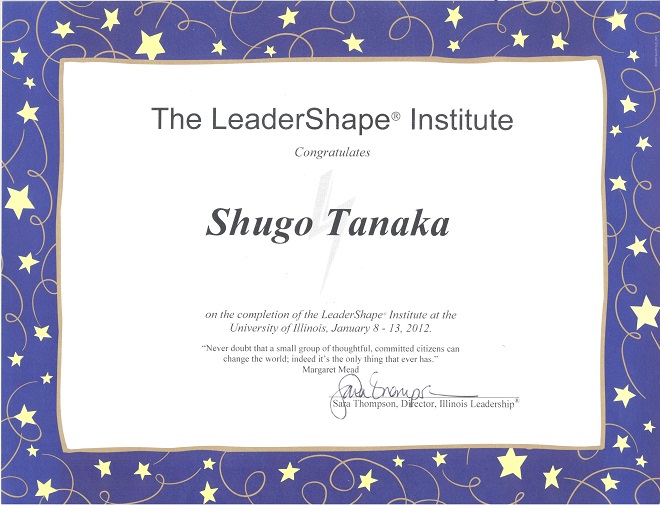
Ignite (February 2012)
Ignite might have been President Obama's favorite i-Program because it is all about change!
I felt like this i-Program wasn't as beneficial as the others, because it emphasized enacting change in a grand, abstract sense, and at the time I wasn't in a position to be making those organizational changes. Even so, I still learned a lot about how to enact change and on being an organizational leader.
In deciding what organization we would drive to enact change in, we first brainstormed all of the networks we are a part of. At the time, I was involved with Treehouse Society, Informatics, SIGGRAPH, ECE 290 project group, Scientific Animations Without Borders, and Hendrick House dormitory. I selected the Informatics club which was most in need of change, and one year later, I'm the treasurer for the club. Some of the changes were put into play like reviving design jam workshops and increasing membership, so in that regard, Ignite was helpful.
We also heard the stories from four alumni who enacted positive change in their careers and organizations. The key takeaways for me were to work through rejection and not burn bridges in relationships. I held onto those ideas particularly when facing transitions between jobs and wanting to still maintain a positive standing. From this, I also learned to take more initiative even at the risk of being rejected. Because if rejections the worst that could happen, it's really not that bad.
One aspect that was brought up again in my leadership theory class is the concept of manager vs. leader. While managers are task-specific and order focused, a leader is about enacting positive change to reach the common goal. I used this knowledge while serving as the Treasurer for the Informatics Club. We were trying to increase interest and stable membership, and our current methods weren't working out. So the president and I had to collaboratively think of how to promote our activities and reach out across colleges to fit the needs of various student groups. We need to cater to art, business, and engineering students, so our marketing and locations for events have to spread across all of those sectors. We also spoke with Informatics professors and alumni members of the club on how to best raise interest in Informatics. This involved taking advantage of our networks and enacting change by not simply following the old ways, since they weren't working for us at the time.
I ended up having a good experience and learned a lot from Ignite. And I continue to utilize these skills in both my service for Informatics and SCNO.
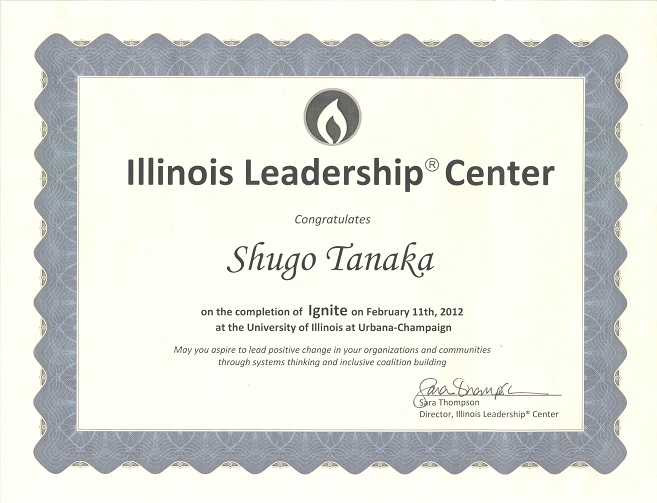
Imprint (February 2012)
A focus of transitions, change, motivation, and networking gives Imprint the crown as my favorite i-Program. Many of the topics we discussed had a direct application throughout the rest of my college career and other facets in my life.
We began by setting the right attitude to commit to for the day. The essence of managing successful transitions contains both a skills set and an attitude. I stated the intention to go out of my comfort zone and be confident when speaking to the alumni and peers. This driving attitude pushed me throughout the day and I ended up having an enriching experience because of it.
Transitions encompass three different phases: the ending, the neutral zone, and a new beginning. One's energy levels and motivations are greatest during the ending and new beginning, but face a dip within the neutral zone which makes transitions difficult to get through. These phases follow in line with the hero's journey- a literary structure going from comfort to wanting to discomfort and then to change. To undergo successful transitions, I have to take initiative, open my field of vision, and be aware to utilize all of my resources.
I can be fairly sociable when I want to be, but I'm still developing the skills to build a strong network. One of the points emphasized that really resonated with me is the idea of aspiring to be a builder, not a user. After this workshop, I make a conscious effort to bridge between my networks by introducing people. I try to be more authentic to myself and transparent in my relationships. And I actively try to step outside more comfort zone to meet new people.
I notice within myself that I sometimes reach a wall when networking, whether it's some anxiety or lack of energy. If I give myself a little mental push and- as Nike says, just do it- I find after going over the initial hurdle, things are much easier. I can easily introduce myself and be an active listener regardless where the conversation goes.
These skills and intentions came right into practice when we were able to talk with UIUC alumni. They were from a diverse number of fields and walks of life, so it was captivating to hear each of their stories. I spoke with several people working in computer science, web development, and creative arts. One of the most interesting thing I've learned is what they studied in college, had very little with how their actual careers turned out. Even though the degree is a starting point, their futures are driven by their passions and interests. With their motivations, they also needed the skills to build relationships and the knowhow to take advantage of opportunities as it came.
This workshop was particularly important because of how I directly used the skills for speaking with people about internships and following the transition after school.
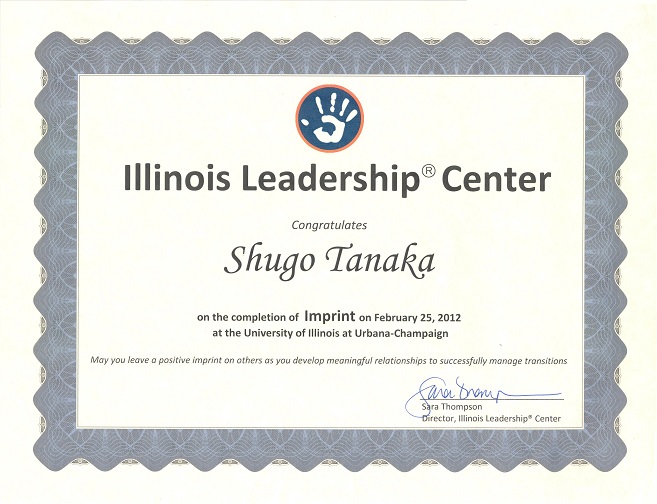
Intersect Facilitator (November 2012)
Three years ago, I sat in their seat: learning and experiencing what someone else gave to me. Now, the positions came full circle and I'm in the role of facilitating an Intersect Small Group.
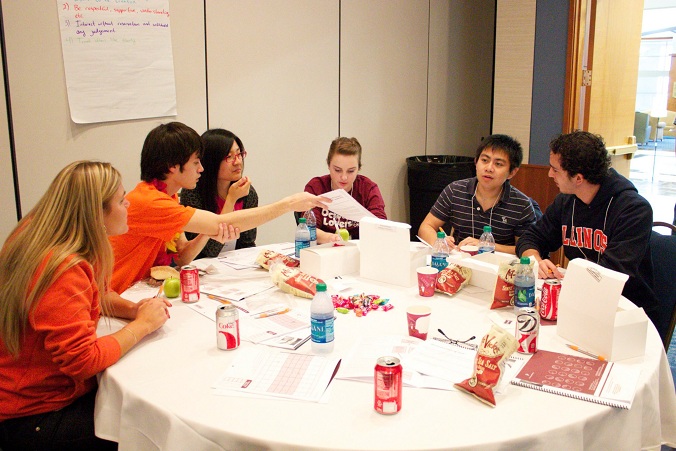
Facilitators' responsibilities were to initiate discussion and to help out organizing the activities. However the core of what I was supposed to do was keep the energy high and everyone engaged throughout the day. This fluctuated throughout the day, but when motivation was low, I reminded myself of my purpose and worked towards re-engaging the group.
I feel very fortunate for the diverse group of students assigned as my team. Everyone was fairly enthusiastic and gave forth a great effort to participate.
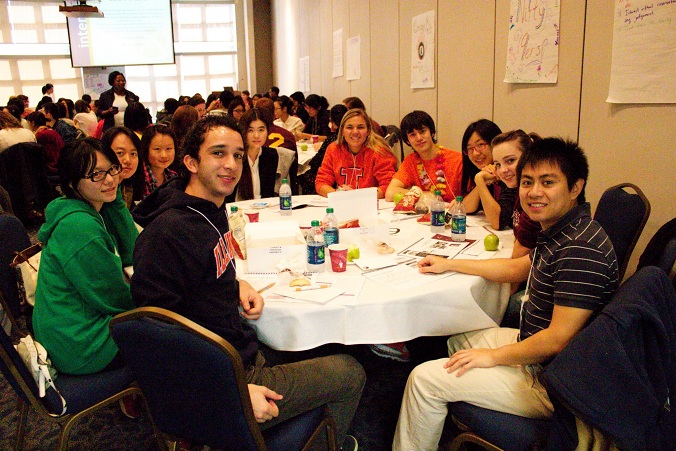
I found that it was much easier to be confident, open, and talkative while I was wearing my lei (that is, because I held the facilitator position). This is somewhat reasonable because I was given the formal authority to lead the discussions, a large part of it had to do with my mindset. When I believe I'm a leader, it's easier and more natural to utilize my leadership skills. This experience was a huge step forward, and I need to just work on applying this mindset to times when I may not have that formal authority. By sharing little bits about myself (I'm half-Japanese, I'm the middleman between art and technology), these were jumping points for others to engage in conversation with me. And when I feel like I have something meaningful to share, I'm much more enthusiastic and engaged to conversation. My entire group was very interested in other i-Programs and being able to facilitate one and I was able to answer most of their questions.
Integrity (March 2013)
With corruption in politics, scandals in the media, and incessant greed in business, it's not difficult to see where integrity falters when it comes to leadership. At this workshop we spent the day discussing ethical dilemmas, moral temptations, and what values we stand for.
I was put in a group with all seniors and graduate students. My group was very diversified with people from India, China, east and west coasts, and throughout the midwest.
We began by defining what it means to have integrity and what qualities those people have developed. As a leader, I want to be authentic and have a continual concern for others. While I believe I already demonstrate many of those qualities, I don't practice them everyday to consider myself as a leader of integrity. One exercise that helped me further down that path is determining which ethical values actually drive decisions in my life. As my core values, I believe in authenticity, fairness, and love. I also value acceptance, creativity, and success as motivating non-ethical factors in my life. These values I selected follow in line with ones I believed in for past assessments. This shows how, although I may refine and alter my values, the core things I believe in have stayed strong.
After watching a clip from a film featuring a professor and his cheating, unambitious student, we discussed defining moments. Those are situations that reveal, test, and shape character. Initially, I couldn't remember times when I faced ethical dilemmas; but after a little brainstorming, I recalled quite a few moments in my life. Some of them I look back fondly since I know I did the right thing, while other times I know I've faltered. In our group discussions, my facilitator really emphasized that it's okay for leaders of integrity to make mistakes. Their integrity comes into play in how they own up to their mistakes and take responsibility to improve them.
Many times throughout the day I thought of the phrase "I'll have to live with myself." This became the first, gut-feeling reaction to specific ethical dilemmas and moral temptations. I once found a wallet full of cash and several credit cards. Being tight on money, I could take some of the money, but then I knew I wouldn't be able to live with myself by doing that. So I turned it in.
And if I do falter, I have to raise up and redeem myself even higher. It's simple math that if you fall by 20%, you actually have to increase by 125% to get back to where you were.
Going back to my values, one of them is to be successful. Success differs for each person- some want independence, others wealth. For me, I would deem my life and my work successful if I could look back and think of myself as a good person. This workshop helped me solidify my beliefs and values so I could further strive to be a person who leads with integrity.
